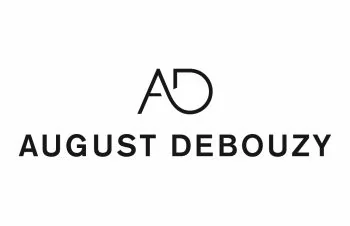From July 1st, 2018, the European Patent Office contemplates to authorize applicants to request postponement of the examination procedure for a period of 3 years.
At the present time, the average duration of the examination procedure before the European Patent Office (EPO) is 23.2 months1. The examination time period should be reduced to 12 months by 20202. The decreasing duration of the examination procedure comes under criticisms from some applicants. According to its detractors, the faster procedure would prevent applicants from raising funds or submitting complementary data during the examination phase. The EPO acknowledged those observations and suggested to postpone the start of substantive examination upon request.
POSTPONEMENT OF THE EXAMINATION PROCEDURE
This new procedure shall enable applicants to postpone the start of examination for 3 years.
In practice, the applicants shall request postponement of the examination procedure within the time limit set forth in the European patent convention to reply to the European/International search report3. The applicants shall request the postponement of the examination together with the filing of the reply4. In this case, the EPO will not initiate the substantive examination before the expiry of the period of 3 years5.
The 3 years period runs from the beginning of the entry into the European phase in case of Euro-PCT applications or from expiry of 6 months after the time limit according to rule 70(1) for direct European applications. For divisional applications, the time period of the postponement is not extended and ends 3 years from the entry into the European phase of the earliest parent application for Euro-PCT applications or 5 years from the filing date or the priority date of the earliest parent application for divisional applications stemming from direct European applications (which is similar to a period of 3 years from the expiry of the 6 months' time window under rule 70(1)).
The postponement procedure will be optional and at no cost. However, the applicants shall keep paying regularly the official fees (examination fee, designation fee, extension fees, validation fees or renewal fees).
The examination procedure shall resume before the termination of the 3 years' time period, through a simple request from the applicant or the filing of a request for PACE or PPH. The EPO shall also initiate examination before expiry of the maximum period in case of third party observations substantiated and non-anonymous6. In the latter case, or upon applicant's request, the examination procedure shall also be accelerated.
ENTRY INTO FORCE
If the EPO confirms its implementation, the new procedure shall enter into force on July 1st 2018 and apply to direct European applications for which the mention of the publication of the European search report occurs on or after this date, as well as to international applications entered into the European phase from July 1st, 2018. It is a pilot program whose results will be evaluated in 3 years.
The procedure will be effective very shortly and first requests for postponement could be filed in the beginning of July. The effects of this procedure for applicants and third parties are manifold.
IMPLICATIONS FOR APPLICANTS
As initially foreseen by the EPO, this procedure will provide applicants with increasing flexibility. Specially to raise funds before the last stage of examination which incurred important costs for translation and validation7. The procedure will enable applicants to have a better insight of the viability of the invention or to collect additional data before the beginning of the examination8. Since the substantial examination does not start, the examination fee is to be fully refund if the application is withdrawn during the 3 years postponement period9.
Besides, the procedure shall enable the applicants to maintain a pending application before the EPO for three additional years with no need for filing a divisional application.
In practice, the applicants shall analyze and comment on the European search report in the usual time limit. It will be possible to file observations without amendment of the claims while filing the request for examination; and then wait the end of three years and the first communication from the Examining division to amend the claims if need be. The EPO can indeed not refuse any application as long as the first notification is not issued by the examining division10. The only limit lies in the fact that the examining division has the discretionary power to accept or refuse further amendments11.
Incidentally, the examination postponement will enable saving several renewal fees before the national offices (during the 3 years of postponement, renewal fees shall only be paid at the EPO). The postponement of the examination procedure might also permit to wait until the start of the unitary patent12.
The postponement of the examination procedure appears really flexible for the applicants who can resume the examination and even accelerate it upon request (for instance when identifying an infringement).
Except where special circumstances exist, making use of the postponement option of the examination seems to be a good practice. Moreover, it will not be necessary to monitor the time limit. The EPO will begin automatically the examination after the postponement period.
THIRD PARTY IMPLICATIONS
The postponement procedure shall make the assessment of the scope of protection of a patent application more difficult. The duration of the uncertainty on the scope of protection shall indeed be extended for about two or three years13. Even though third-party observations lift the postponement, those observations shall be substantiated and then associated with significant cost; can the mere copy-paste of the written opinion be regarded as a substantiated opinion? Furthermore, those observations shall be non-anonymous. Therefore, if applicants do not want to reveal their identity, they have to appoint a patent attorney14.
IMPLICATIONS FOR THE EPO
According to the forgoing - the necessity for applicants to reply to the search report and the increasing legal uncertainty for third party – it appears that the new postponement procedure will firstly benefit the EPO. The workload in the examining divisions will indeed decrease, thus reducing backlog and ironically the duration of the substantive examination procedure.
Incidentally, the increasing duration of the granting procedure will enable the EPO to top up its incomes due to the annual fees collected during the postponement of the examination (whereas fees after grant are paid to the EPO only up to 50%).
CONCLUSION
The new optional postponement procedure of the examination goes against the decreasing duration of the search, examination and opposition procedures initiated during the last few years in the EPO. However, the procedure reveals manifold advantages for applicants. They could maintain a pending application with a broad scope of protection for 3 more years while keeping the opportunity to request an accelerated examination at any time. The applicants shall be able to accelerate or delay the granting procedure of their patents.
Footnotes
1 Average duration of the procedure between the filing of the request for examination and the receipt of the intention to grant (communication under rule 71(3) of the European Patent Convention) on November 25th, 2016, CA/97/16
2 « Early Certainty for Examination » procedure (ECfE) established since July 2016 at the EPO, CA/97/16, 25/11/2016
3 It is the time window pursuant to (i) rule 70a(1) for direct European applications ; (ii) rule 161(1) for Euro-PCT applications for which the EPO acts as the International Searching Authority or as Supplementary International Searching Authority ; or (iii) rule 70a(2) for others European applications. CA/PL 4/18, 25/01/2018
4 Even in the case of a request for postponement, it will be required to request the examination of the patent application (or confirm an earlier request for examination) and to provide a reply to the search report. In absence of reply to the search report, the patent application shall be deemed to be withdrawn (cf. rules 70a(3) or 161(1) last sentence of the European Patent Convention). CA/PL 4/18, 25/01/2018
5 The request for postponement will be refused if third party observations substantiated and non-anonymous are already filed. Therefore, it will be useless to file as a precautionary measure several not-substantiated and anonymous third party observations in order to avoid the postponement of the examination. Only substantiated and non-anonymous observations will be take into account. CA/PL 4/18, 25/01/2018
6 Third party observations shall require at least one specific objection: novelty, inventive step, industrial applicability, clarity, sufficiency of disclosure, non-patentable subject-matter or unallowable amendments; and indicate facts and evidences in support of the objections. CA/PL 4/18, 25/01/2018
7 At least until the beginning of the Unitary patent.
8 Specially in the pharmaceutical and biotechnological industries where the timeframe for the launch of a new product on the market is particularly long and where additional data from the clinical research are often available after the first filing.
9 See Article 11a) Rules relating to Fees
10 See the Guidelines for Examination at the EPO C-V, 14
11 At the present time, this discretionary power is not that used against the applicants. However, according to the recent proposal of amendment of the rules of procedure of the boards of appeal, probably in force in three years, the Boards of appeal will overrule unallowable amendment only in case of obvious error of the examining division.
12 The request for unitary effect shall be filed with the European Patent Office no later than one month after publication of the mention of grant of the European patent in the European Patent Bulletin (rule 6(1) of the Rules relating to Unitary Patent Protection). The postponement of the examination also postpones the grant of the patent and increases the probability that the Unitary Patent enters into force before the grant of the patent application for which postponement was requested.
13 If the first notification is issued shortly after the end of the postponement procedure, although currently the examining division needs about 6 months to 1 year to issue the first notification.
14 Provided that the filing of third-party observation by an appointed third-party or a patent attorney acting as a strawman is considered by the EPO as a non-anonymous filing. It should be the case as appointed third-party or patent attorney acting as strawman is already considered as an authorized person to file an opposition at the EPO.
The content of this article is intended to provide a general guide to the subject matter. Specialist advice should be sought about your specific circumstances.



